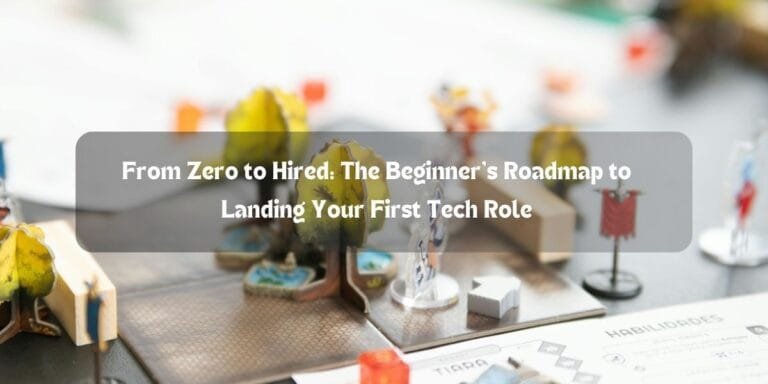

Introduction
Generative AI (like ChatGPT, GPT-4, and image/video synthesis tools) is revolutionizing education. By 2025, these technologies are reshaping how students learn and how educators teach. “Generative AI is transforming education by enhancing personalized learning, automating tasks for teachers, and providing 24/7 tutoring support,” according to EdTech analysts. In other words, AI can tailor lessons to each student, create content on the fly, and offer interactive help at any time. For online learning platforms like Course Plus, integrating AI means courses can become more adaptive and engaging than ever before. Let’s explore the major ways generative AI is changing the e-learning landscape.
Personalized, Adaptive Learning
One of AI’s biggest impacts is adaptivity. Traditional online courses present the same content to everyone, but AI-powered platforms can analyze each learner’s progress and adjust in real time. As one education blogger notes, adaptive learning systems analyze student performance and “ensure learners receive material at the right difficulty level, creating a supportive and personalized environment.”. Practically, this means AI can give you extra practice on topics you struggle with, skip ahead if you’re excelling, or recommend resources that match your learning style.
For example, an AI-driven math course might generate easier problems if you’re making errors or more challenging puzzles as you improve. A language learning app might adjust its dialogue complexity based on your vocabulary. By doing so, AI keeps learners in the ideal “sweet spot” of difficulty – not bored, not overwhelmed. This personalized pacing boosts retention and motivation. Course creators use AI algorithms in the background to continuously analyze quiz results and engagement, then modify course content accordingly. The result is a truly customized learning journey.
Intelligent Tutoring and Support
Generative AI also acts as a virtual tutor. Chatbots and tutor agents powered by models like ChatGPT can answer student questions 24/7. Students can ask for explanations, hints, or examples at any time – far beyond the limitations of office hours. As research highlights, AI can “produce personalized study materials, generate quiz questions, and even draft essays” for students. In practice, a learner using Course Plus might have an AI assistant to clarify a concept in their own words, or to quiz them on key points.
Moreover, AI helps instructors by automating repetitive tasks. It can generate practice exercises, summarise readings, or grade simple quizzes. This saves educators hours of work. For instance, an instructor might use AI to auto-generate multiple-choice questions based on a lesson, then tweak them. Blue Carrot, an e-learning company, reports that AI tools like ChatGPT “reduce the time taken [for course creation] from weeks to just a few days”. By accelerating content creation, teachers can focus on improving pedagogy and interacting with students, instead of writing every word themselves.
Enhanced Engagement and Multimedia Content
AI enables richer, more engaging content. Using natural language generation and image/video synthesis, educators can create dynamic media. For example, an AI tool can produce realistic diagrams, simulate lab environments, or even create videos with animated instructors (e.g., Synthesia). According to analysis, AI-powered tools can craft “high-quality captivating media,” boosting learner engagement. This includes interactive simulations, gamified exercises, and adaptive quizzes that respond to answers in real time.
Natural Language Processing improvements mean chatbots can give more human-like feedback. A student working on a project might get AI-driven critique on their writing style or logic. Generative AI can also assist non-technical instructors: for instance, a teacher can verbally describe a lesson, and an AI generates slides or quiz questions automatically. This multimedia generation empowers teachers to diversify their courses. The BrainCert blog describes how AI chatbots and gamification keep students motivated, and how “engaging experiences including simulations, quizzes, and gamified learning paths” become easier to implement with AI.
Rapid Course Creation and Personalization
Generative AI is not just learning-facing; it’s empowering the creators of courses as well. Platforms now use AI to streamline the instructional design process. For example, an instructor uploading a syllabus might have AI suggest a course outline, fill in explanatory content, or translate materials into multiple languages. Course Plus itself can leverage these tools to update and diversify content more quickly.
As reported in industry case studies, using AI for e-learning cuts production time dramatically. In one example, an e-learning firm created 70 hours of new content in four languages within two months by using generative AI for scripting and video creation. This speed means Course Plus can add new courses or revise existing ones in response to trends at unprecedented pace. It also means more personalized electives: AI could generate specialized modules for niche topics if a few learners show interest.
However, it’s important that educators review AI-generated content carefully. While AI is powerful, it sometimes makes mistakes or produces bias. Course creators must validate and refine AI outputs to maintain accuracy and quality. Still, the efficiency gains are huge. For example, AI can auto-generate practice problems, draft an explanation paragraph, or offer a coding challenge, all of which a teacher can then polish. This symbiosis of AI speed and human expertise results in high-quality, up-to-date courses for learners.
Looking Ahead: The Future of AI in E-Learning
Experts predict AI will only become more integrated. We’re already seeing “AI tutors” and hyper-personalized curriculums emerging. Soon, intelligent systems may detect a student’s frustration or boredom via cameras and adjust content accordingly (so-called “emotional AI”). Tools might translate courses on the fly so learners can study in any language, with AI handling localization and subtitling.
For platforms like Course Plus, this means courses will constantly evolve. The system could recommend next steps for you based on your progress, much like Netflix suggests shows. AI could even analyze industry job postings and adapt curriculum to match the in-demand skills. In short, generative AI is transforming online learning into a continually adapting, interactive ecosystem.
Key Takeaways: Generative AI is a game-changer for education. It enables personalized learning (smart tutoring and adaptivity), richer content (multimedia and interactive materials), and faster course creation. According to leading EdTech sources, AI-driven education tools personalize quizzes and study plans to individual students, and ensure material fits each learner’s level. This boosts engagement and outcomes. Course creators use AI to generate content quickly and localize it, meaning learners get fresh, relevant courses without delay.
By leveraging generative AI, online learning platforms like Course Plus can offer more dynamic, effective learning experiences. As you explore our courses, you’ll benefit from these innovations – whether it’s adaptive practice questions, AI-generated study guides, or responsive support. Stay tuned for more AI-powered features on Course Plus, and get ready to learn in smarter, faster ways.
Ready to learn smarter? Enroll in Course Plus courses today and experience the future of learning with AI-powered education!
Frequently asked Questions
What is generative AI?
Generative AI refers to artificial intelligence that creates new content (text, images, videos, etc.) based on data. In education, tools like ChatGPT can write explanations or generate quiz questions, and AI-driven programs can produce custom lesson materials on demand.
How does AI personalize learning?
AI analyzes a learner’s performance and tailors content accordingly. For example, it might offer more practice on weak areas or advance faster through easy topics. This adaptive learning means each student follows a unique path, improving efficiency and retention
Will AI replace teachers?
No. AI is a tool, not a replacement. While it automates tasks and provides 24/7 support, human teachers are still essential for guidance, mentorship, and complex instruction. Think of AI as an assistant that enhances teachers’ capabilities – handling routine content creation and answering basic questions, freeing educators to focus on personal interaction and problem-solving.
Are there any downsides to AI in education?
While powerful, AI can sometimes generate errors or biased content. Educators must review AI outputs for accuracy. Data privacy is also a concern: AI systems use student data to personalize learning, so platforms must protect that information. Course Plus and other providers follow strict standards to keep learning safe and effective.
How do I benefit from AI-powered learning on Course Plus?
Course Plus continuously integrates AI enhancements. You may see smarter course recommendations based on your interests, adaptive quizzes that adjust to your level, or interactive chatbot help when studying. These AI features make online learning more tailored and efficient for you.
Courses Related To This Blog
Discover a range of carefully selected online courses crafted to enhance your skills across multiple topics. Engage with affordable, top-quality courses designed to provide in-depth learning and address your unique educational needs effectively.

The Complete Guide To Getting A Teaching Job
Join the Community & Get Updates🔥
Related Post
Explore our latest expert insights, practical guides, and in-depth resources on trending topics designed to answer your questions, solve your challenges, and help you stay ahead with up-to-date trends and strategies.













